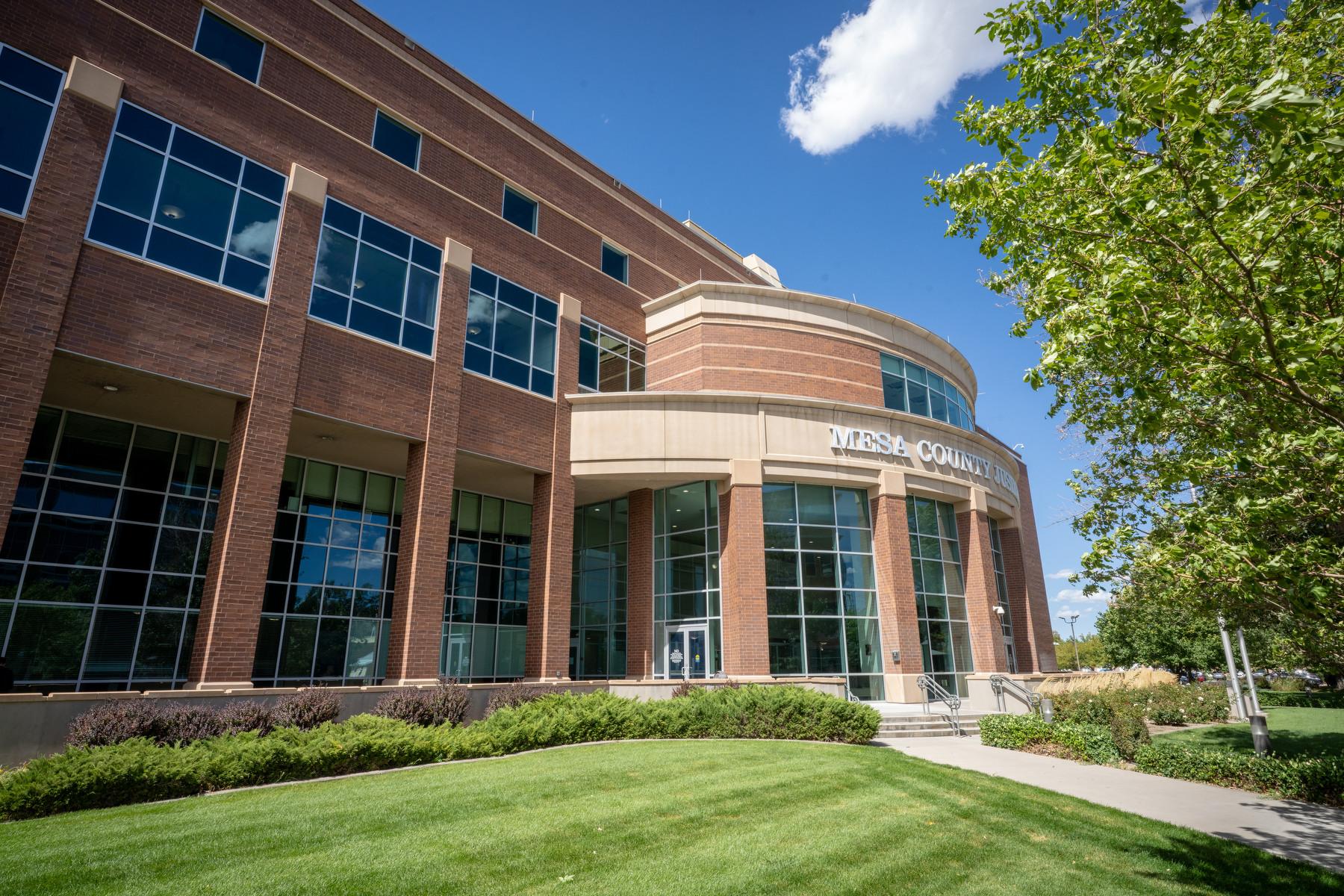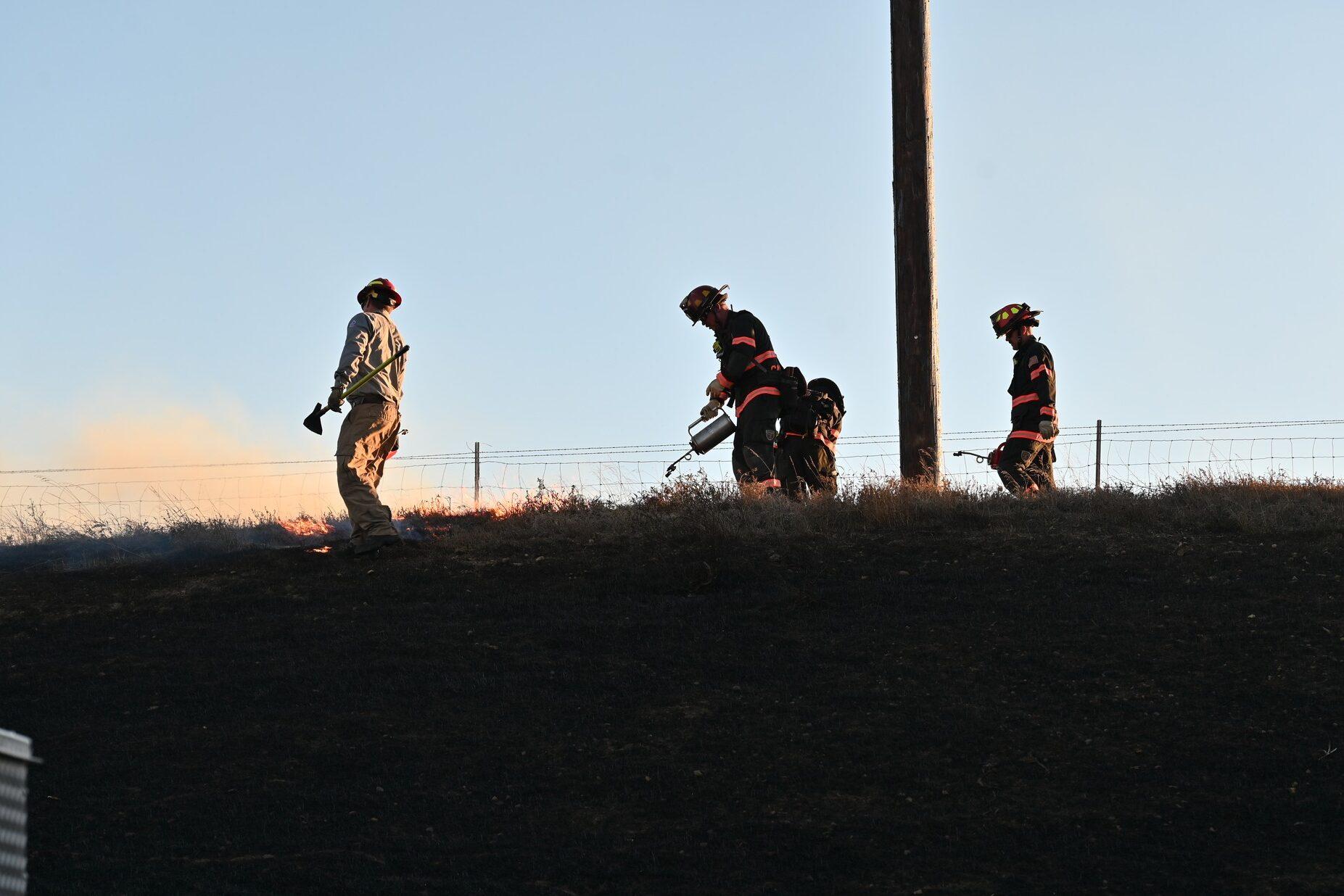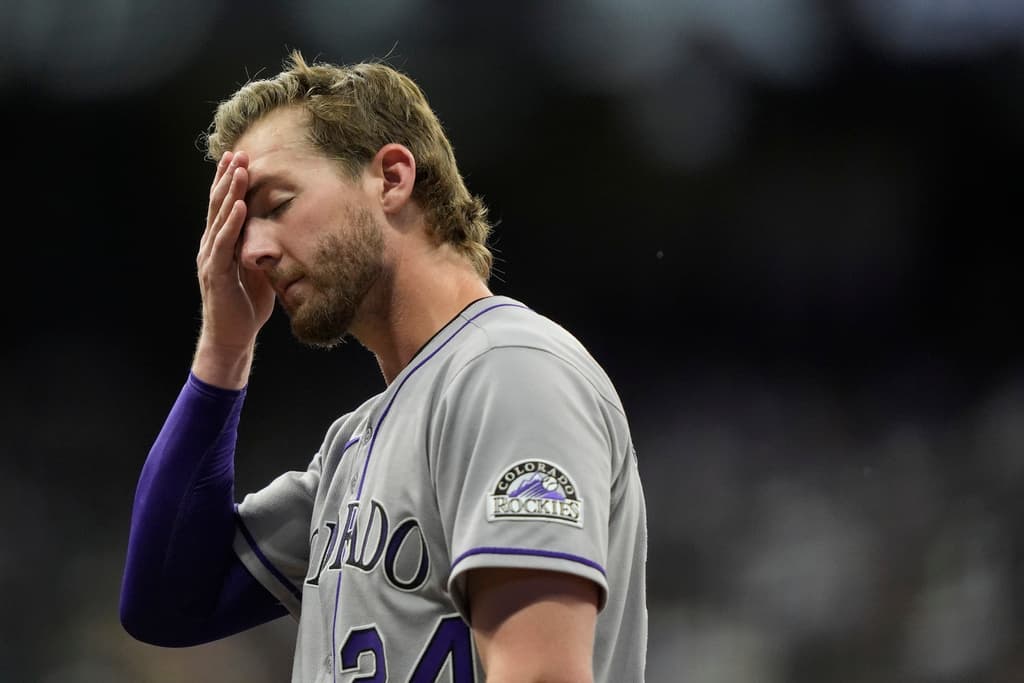
Someday, baseball historians will look back at the 2025 Colorado Rockies season and marvel at the tens of thousands of fans who poured into the ballpark.
All to see what might be the worst team in baseball's long history.
“That's so long, that's like since the Civil War, like no one's done this worse ever,” said Adam Cayton-Holland, a comedian and a once-avid Rockies fan. He attended the first Rockies game at Mile High Stadium. His dad had season tickets. It felt like the beginning of something special.
As they resume the season Friday after the All-Star break, the Rockies are on pace for their third straight 100-loss season. They have won fewer than one out of every four games. They aren’t eliminated from the playoffs (yet), but they sit 35 and a half games back of the division-leading Dodgers.
Baseball is a numbers game. All of these Rockies’ numbers are bad:
To get their win-loss record back to even, they would need to go on a 52-game winning streak. The worst team in modern baseball history, measured by total losses, is last season’s Chicago White Sox with 121 losses. The Rockies are on pace for 125 losses. The modern record for losing percentage is the 1916 Philadelphia A’s at .235. The Rockies are currently at .229.
The manager who presided over two of those awful seasons was fired 40 games into the year. It didn’t really help. And the immediate future isn’t particularly bright either. There’s no deep well of player prospects. And without cutting into profits, there isn’t enough money to bring in expensive free agents.
And yet, the fans keep coming. The Rockies still average more than 30,000 fans per game at Coors Field, often called the best bar in Denver’s LoDo neighborhood. For comparison, last year’s historically bad Chicago White Sox managed just 17,000 per game.
Cayton-Holland and others believe the losses may be the team’s salvation. If they’re bad enough, if attendance is low enough, and if that hits the team’s owner, Dick Monfort, in the pocketbook hard enough, he’ll be forced to finally change the club’s losing ways. Maybe even sell the franchise.
“If you love the Colorado Rockies, boycott the Colorado Rockies,” said Cayton-Holland. His young sons now root for every loss. “We're raising little haters.”
It is a very long shot, but there are reasons that a boycott could work, given the unique financial situation of the team’s owners, led by Monfort.
“The Rockies are more dependent on attendance than any other team right now in the league,” said Denver Post columnist Troy Renck, who’s covered the team since the 90s. He doesn’t necessarily endorse a boycott, but acknowledges, “it would send a message.”
The Rockies are overly reliant on ticket and concession sales, because they don’t have a lucrative local TV deal like the Dodgers, Cubs or Yankees. Fewer fans buying $15 beers would presumably get the owner’s attention, especially since Monfort gets exclusive rights to all revenue from concessions.
There’s evidence that the team’s losing ways may be catching up to them. At least a little.
Last season, roughly half a million fewer fans attended a game at Coors Field compared to their last competitive season in 2018. If the average fan spends $30 on a ticket and $25 on beer and food, that equates to a loss of about $25 million in annual revenue compared to 2018.
The Monforts are not as rich as Colorado’s other sports owners and less able to withstand a prolonged boycott. They don’t have the immense wealth of Stan Kroenke, who controls the most valuable (and successful) set of sports franchises in the world, including the champion Avs and Nuggets. Monfort doesn’t have the kind of resources of the Walton-Penner ownership group for the Broncos, which is associated with the Walmart fortune.
The Monforts do have a thriving property development business, but some of their biggest investments are centered around Coors Field — with McGregor Square the crown jewel. Dick Monfort’s nephew, Kenneth, through a separate company, owns and operates nearby bars and restaurants: Dierks Bentley's Whiskey Row and Riot House. Kenneth has plans to develop another nearby block, formerly home to The Giggling Grizzly and El Chapultepec.
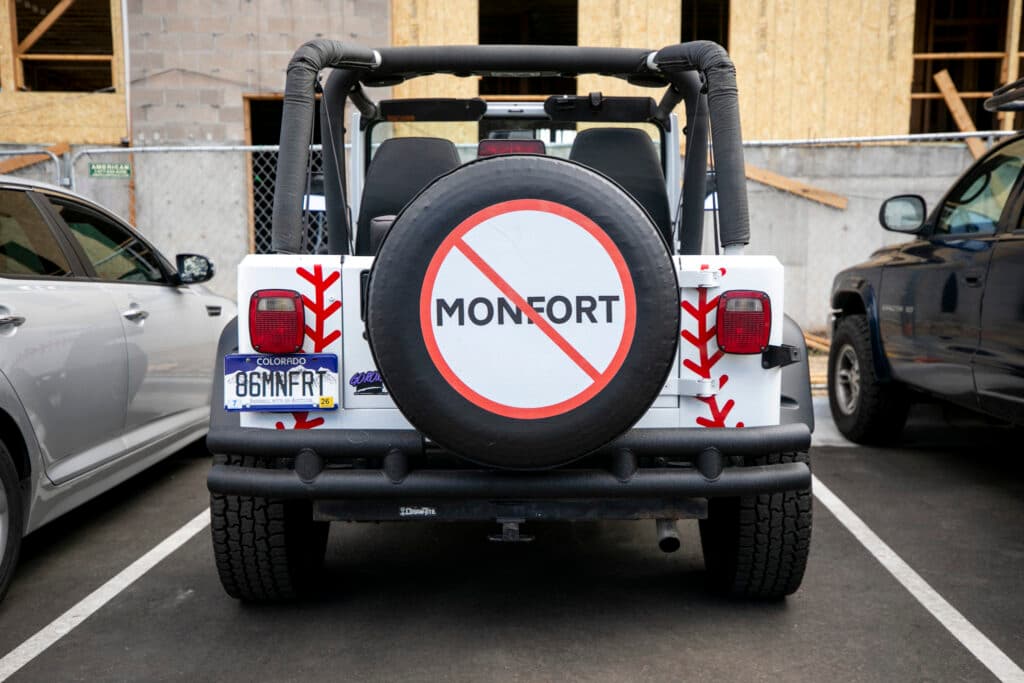
So a boycott could have a compound impact on the Monforts. Fewer fans going to games would mean less spending inside and outside the ballpark.
“If the fans want to have an impact, it's not going to be the lone voices crying out; it's going to be collective activity,” said Andrew Zimbalist, a sports economist at Smith College. “That's not an easy thing to accomplish.”
But those hoping staying home could really force a change should know this: Zimbalist has been an economist since 1974 and spent decades thinking about and covering the intersection of money and sports, particularly baseball. He could not recall an example of a fan boycott working to change a North American pro sports team.
The Blame Game
As the losses have mounted, experts and fans have tried to understand what makes the team so bad. There are many theories:
The franchise has been slow to embrace analytics to find better players; the altitude lets the ball travel farther and makes it hard for pitchers to succeed in 81 home games a year; the franchise is far too loyal to players, coaches and staff (including family), stifle creativity and new ideas employed by more successful teams
At a recent home game, no fan entering Coors Field, who spoke with CPR News, blamed the altitude or injuries or bad luck for the team's losing.
Anger instead was pointed at one thing: “The Monforts!” yelled Brooks Smith, a longtime Rockies fan.
Smith joked that the recent promotion of Dick Monfort’s son, Walker Monfort, to executive vice president, will surely be the answer. “Nothing can be better for the Rockies than getting more Monforts involved in this season. This team needs more Monforts!”
Another of Monfort’s sons, Sterling Monfort, is director of professional scouting — a critical position for a team that can’t realistically chase high-priced free agents at, say, the Shohei Otani level.
Smaller market teams can compete, but it involves drafting and developing young talent, then trading them at peak value before their contracts become too large.
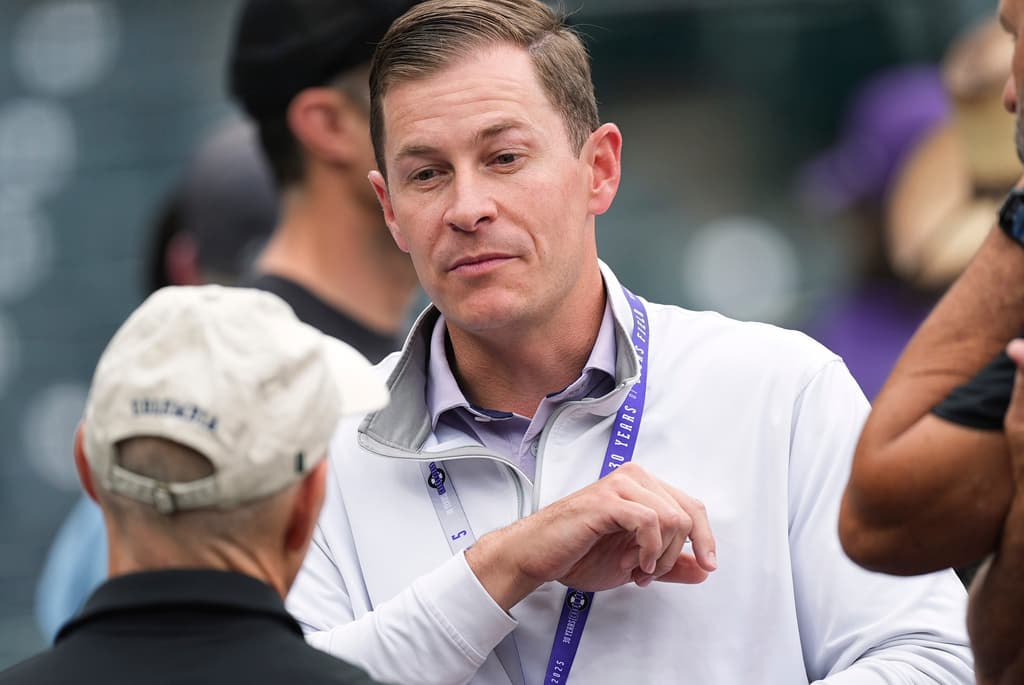
Under the Monforts and General Manager Bill Schmidt, the Rockies have utterly failed to emulate the success of the Tampa Bay Rays or Arizona Diamondbacks.
“If you're gonna be a draft-and-development organization, I've got an idea: you need to start drafting and developing well!” said Renck. “They don't do it well.”
A recent analysis by The Athletic found that of the Rockies’ 14 top draft picks in the last nine years, they have a combined -1.7 wins above replacement. Basically, meaning their top prospects have fared far worse than a minor league replacement or readily available free agent.
Compared to others in their draft classes, the prospects had less preparation when they arrived in Denver. There are college programs with more advanced analytics and training than the Rockies. The team was one of the last pro baseball franchises with an advanced pitching analytics and training system, called a pitching lab, at their spring training facility.
On top of all that, the Rockies' timing with player contracts and trades is comically bad, the experts say.
The team tends to hold onto players too long, allowing big market teams to scoop them up rather than trading them beforehand to get prospects in return.
“They let Brendan Rodgers go for nothing, they let Trevor Story go for nothing, they let Jon Gray go for nothing. This is not how you run this business,” said Renck.
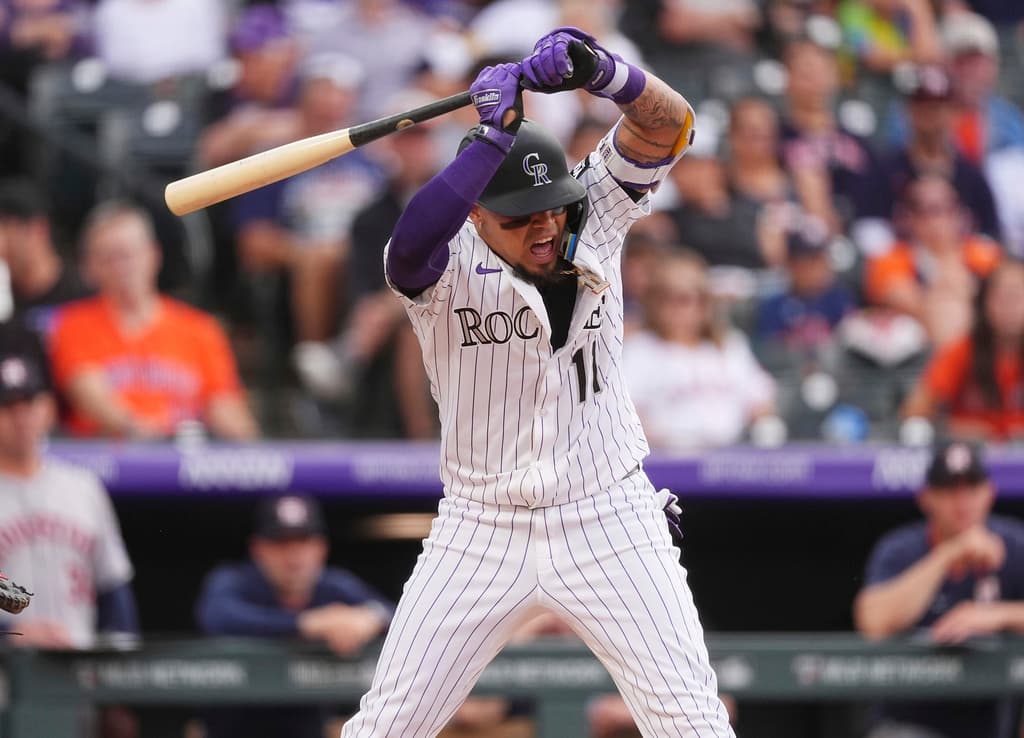
The Monforts have invested big money in a few free agents. Team payroll never ranks at the bottom of the league. This year, they are ahead of nine other teams, spending $126 million, according to Sportrac.
But they have managed to spend the money in disastrous ways.
Kris Bryant signed a $182 million contract in 2022 but has been injured and ineffective. In 2019, one of the game’s best talents, Nolan Arenado, signed a $260 million contract but was traded to the Cardinals a year later for a handful of prospects (that mostly didn’t pan out) following a personality clash with the front office.
And Monfort gave the Cardinals an additional $50 million just to offload Arenado’s contract.
After initially agreeing to provide General Manager Bill Schmidt for an interview with CPR News for this story, the Rockies PR department then stopped responding to emails and calls. Dick Monfort rarely speaks to the press.
The business of bad baseball
Besides not being a solution on its own, a successful boycott also has another big problem: Coors Field.
Coors Field is widely considered one of baseball’s great parks. The brick and steel structure that opened in 1995 is so perfectly crafted it looks like it has always stood there next to the 100-year-old brick buildings in Lodo.
“You can’t beat Coors Field, it’s just so beautiful out here,” said Roland Barcal, walking into a game recently. “My aunt and uncle, who were actually born and raised out here, they always come to the Rockies games just for the beer.”
The ballpark, the coolest part of the Rockies, was built by taxpayers. Montfort pays $1 million in rent and another $1.5 million annually for capital improvements to the Denver Metropolitan Major League Baseball Stadium District. Board members and district staff praise the Rockies for their meticulous maintenance of the facility.
A boycott, they said, would not put that in jeopardy.
“The Colorado Rockies Baseball club continues to be compliant with the lease agreement maintaining and operating Coors Field to a high standard,” said Matt Sugar, executive director of the district, in a text message. “The Rockies obligation to maintain and operate the Ball Park is not tied to either attendance or concessions.”
Maintaining Coors Field, the third oldest in the National League, at altitude, through Denver’s extreme weather, is no small undertaking. Under the Monforts, the facility shows almost no sign of wear and tear.
There is, however, no incentive in the lease for the Rockies to field a decent roster. The new lease, signed in 2017, runs 30 years, with another 15 years in team options to extend. It includes no provisions that the team invest in players or analytics or their minor league farm system.
Investments instead have been in the entertainment experience, like the party deck or McGregor Square, said Rick Ridder, a former stadium district board member.
“I just fear that they will remain two steps behind other teams, because of the lack of player development, lack of analytics,” said Ridder. “But also just their business model is one that has adapted to more an entertainment center than building a baseball team.”
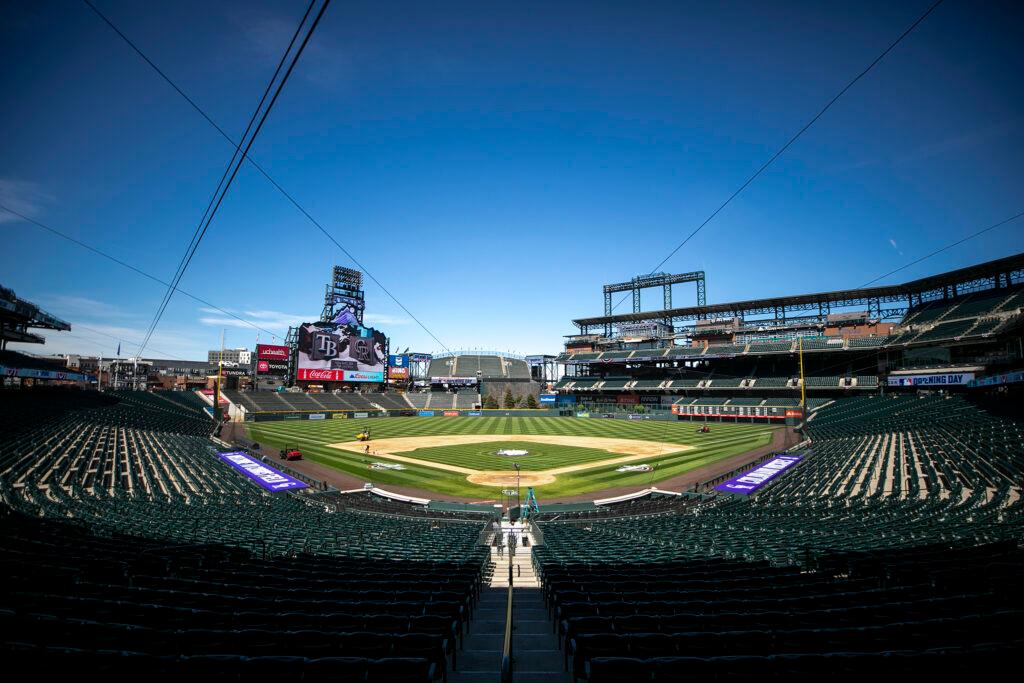
Even if Rockies supporters boycott, the Monforts are buffered by the away team’s fans. Coors Field's average attendance is better than 16 other teams. The worst team in baseball draws more fans than the best team in baseball this year, the Detroit Tigers.
It’s Dodgers and Padres and Cubs jerseys that fill the ballpark night after night.
When the Astros visited Coors Field recently, there were shouts of “Go Astros!” from the thousands of Houston fans that filled the park. One fan in a Rockies shirt said she was actually a Cincinnati Reds fan, but sheepishly said she felt obligated to wear the local colors. Another attendee said he was only there because he got a free ticket.
Cayton-Holland, the comedian and Colorado sports diehard, keeps coming back to the idea of a boycott. Sure, it will require shared sacrifice from fans to forego baseball and a beer on a perfect Denver summer night.
And yeah, maybe it won’t make anybody pitch, field or hit better in the short term. But for Cayton-Holland and others, it’s the only way to force the insular Monforts to look outside of their family and friends, to baseball minds from other successful organizations. Or better yet, he said, just sell the team.
“I truly think Denver is a top 5 sports town in America,” said Cayton-Holland. “But what's really keeping me from winning that argument is the Rockies. Every other franchise around here tries really hard.”

